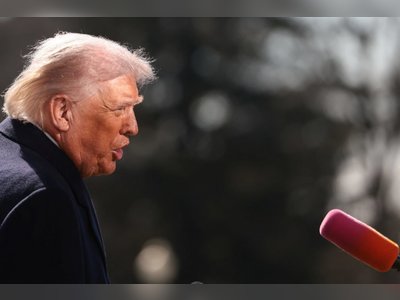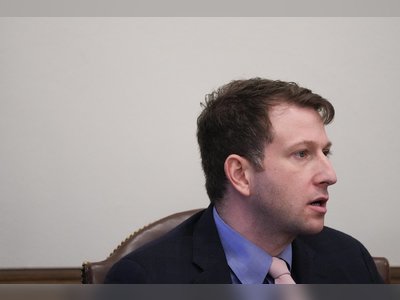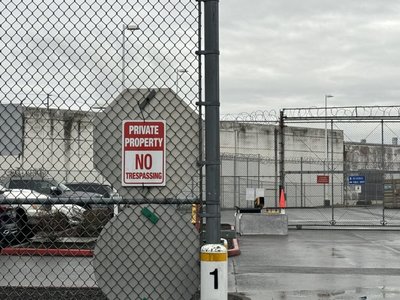Armenia's Bid for European Union Membership Gains Momentum
Armenian Government Advances Legislation for EU Application Amid Regional Challenges
On January 9, the Armenian government approved a bill aimed at applying to join the European Union, marking a significant step in the country's gradual pivot from a traditional alliance with Moscow towards closer ties with Europe.
The initiative will now be discussed in the national parliament.
Prime Minister Nikol Pashinyan emphasized the importance of understanding the implications of EU membership, consistent with his October 2023 address at the European Parliament, where he affirmed Armenia’s readiness to align closely with the EU.
The current Armenian ruling party, the Civil Contract, holds a majority with 71 out of 107 seats in the parliament.
If the parliament approves the proposal, a referendum will be held, allowing the Armenian public to vote on this significant geopolitical shift.
The government's initiative follows a successful petition by the public last year, which garnered the necessary 50,000 signatures.
Foreign Minister Ararat Mirzoyan suggested that a new partnership with the EU could be signed soon, potentially including visa liberalization.
In recent years, Armenia has increasingly distanced itself from Russia, instead fostering political, economic, and military ties with European partners.
This shift became more pronounced after Russia failed to guarantee terms of a ceasefire agreement with Azerbaijan in 2020. Azerbaijan invaded the Nagorno-Karabakh region in September 2023, a development that significantly affected Yerevan's strategic alliances.
Challenges remain on Armenia’s path to EU membership.
Despite governmental declarations, Armenia retains significant economic, trade, and energy dependencies on Russia, which maintains a military base on Armenian territory.
Additionally, the EU member states are major consumers of natural gas from Azerbaijan, posing potential diplomatic complexities.
Azerbaijani President Ilham Aliyev recently described Armenia as a 'fascist threat,' raising tensions further and complicating efforts mediated by the EU to find a peaceful resolution to the decades-long conflict between Yerevan and Baku.
The Kremlin, through spokesperson Dmitry Peskov, has stated that while Armenia is free to determine its international affiliations, it cannot remain in the Eurasian Economic Union (EEU)—comprised of Armenia, Belarus, Kazakhstan, Kyrgyzstan, and Russia—if it joins the EU. In June, Armenia announced its intent to exit the Collective Security Treaty Organization (CSTO), expressing dissatisfaction with Moscow's inability to secure Armenian interests during Azerbaijan's military actions in 2023.
The initiative will now be discussed in the national parliament.
Prime Minister Nikol Pashinyan emphasized the importance of understanding the implications of EU membership, consistent with his October 2023 address at the European Parliament, where he affirmed Armenia’s readiness to align closely with the EU.
The current Armenian ruling party, the Civil Contract, holds a majority with 71 out of 107 seats in the parliament.
If the parliament approves the proposal, a referendum will be held, allowing the Armenian public to vote on this significant geopolitical shift.
The government's initiative follows a successful petition by the public last year, which garnered the necessary 50,000 signatures.
Foreign Minister Ararat Mirzoyan suggested that a new partnership with the EU could be signed soon, potentially including visa liberalization.
In recent years, Armenia has increasingly distanced itself from Russia, instead fostering political, economic, and military ties with European partners.
This shift became more pronounced after Russia failed to guarantee terms of a ceasefire agreement with Azerbaijan in 2020. Azerbaijan invaded the Nagorno-Karabakh region in September 2023, a development that significantly affected Yerevan's strategic alliances.
Challenges remain on Armenia’s path to EU membership.
Despite governmental declarations, Armenia retains significant economic, trade, and energy dependencies on Russia, which maintains a military base on Armenian territory.
Additionally, the EU member states are major consumers of natural gas from Azerbaijan, posing potential diplomatic complexities.
Azerbaijani President Ilham Aliyev recently described Armenia as a 'fascist threat,' raising tensions further and complicating efforts mediated by the EU to find a peaceful resolution to the decades-long conflict between Yerevan and Baku.
The Kremlin, through spokesperson Dmitry Peskov, has stated that while Armenia is free to determine its international affiliations, it cannot remain in the Eurasian Economic Union (EEU)—comprised of Armenia, Belarus, Kazakhstan, Kyrgyzstan, and Russia—if it joins the EU. In June, Armenia announced its intent to exit the Collective Security Treaty Organization (CSTO), expressing dissatisfaction with Moscow's inability to secure Armenian interests during Azerbaijan's military actions in 2023.












